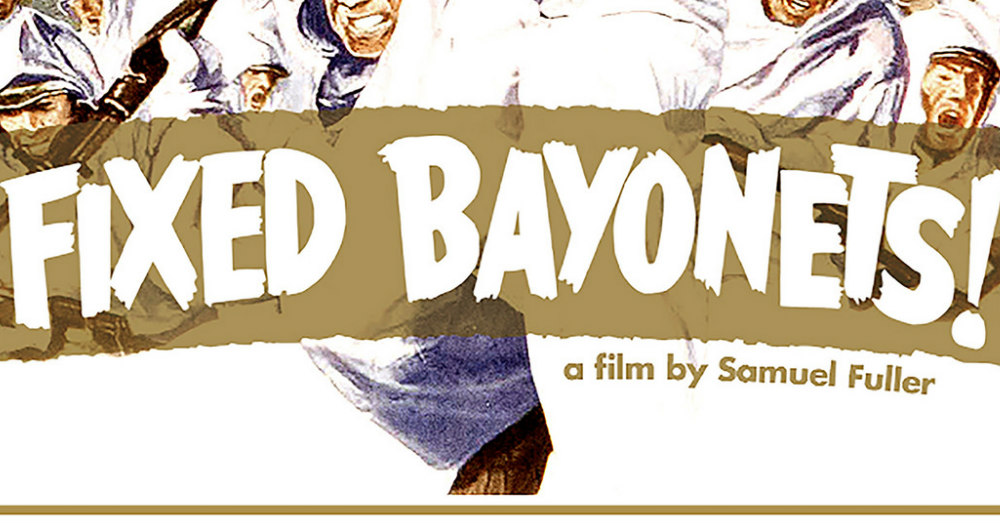
I’m noticing more and more a theme in postwar (especially American) cinema concerning pacifists turning towards violence. A character will introduce him- or herself as someone unable and morally opposed to weapons in general or harming another human being specifically, only to be put in a situation in which violence is presented as the only way out. We’ve covered (at least) two such films on this very website – Shane and Violent Saturday – and, having just seen it, I can add the considerably odd Frank Sinatra vehicle Suddenly to this list.
It’s not hard to see why American filmmakers and moviegoers would be interested in this subject at this time. Many of them had recently returned from war, where they did awful things for a greater good; those who didn’t go to war themselves certainly knew somebody who had. On a much larger scale, the use of the atomic bomb on Japan was a national decision Americans were left to wrestle with. Most probably considered themselves to be peaceful people; certainly not killers at any rate. These films served to explore the issue, while safely reasserting that violence, sometimes, really is the only answer.
Fixed Bayonets! was Samuel Fuller’s fourth film, his first for a studio after a string of independents (collected, handsomely, in an Eclipse set from Criterion). The whole thing was shot in a studio, despite taking place in the mountains during the still-raging Korean War. These early Korean War features are caught in unusual terrain, still carrying over a lot of the swelling pride of combat in films made around World War II, but taking a more cutting, cynical view of their larger purpose.
The film deals with a small platoon left to guard a recently-abandoned U.S. post, and their efforts to convince the enemy that the position is still fully staffed so as to give the larger army something of a lead as they ship out. It’s the definition of a bad job. Our point of entry is through Corporal Denno (Richard Basehart), an Academy dropout relegated to a glorified grunt after his training revealed a weakness for committing men to die. But he’s in something of a position of authority here, one that is rising incrementally as his superiors are gradually killed off. He’s managed not to kill anybody so far, and would like to coast through the rest of his tour without doing too much harm, one way or the other.
Fuller, who also wrote the screenplay (adapting John Brophy’s novel), does a nice job sketching out the rest of the platoon. Most rarely rise above caricature, but they leave a real impression, and Fuller’s own experience in the army gives him great insights into how men pass the time. There’s a lot of business about the value of clean socks. Mostly, the men tell jokes and try to create an atmosphere that might distance them emotionally from the near-certainty of death. When they are forced to buckle down and confront it – most notably in an unbelievably-tense scene involving landmines – their fear is palpable. More than almost any other filmmaker, Fuller understood that bravery in wartime was not necessarily about “bucking up” or “being a man” but just having no other option but to do some impossible task, simply because you’re there and doing it.
I have not been a big fan of Fox’s HD transfers of their library titles – on this site, we’ve looked at Pickup on South Street, Wild River, Forty Guns, A Letter to Three Wives, and more. They run the gamut between “serviceable” and “actively bad.” I was especially pleased, then, that Fixed Bayonets! looks as good as it does on this new (Region B locked) Masters of Cinema Blu-ray. Fox’s usual virtues – contrast and clarity – are once again superbly handled, but with more natural variation, accounting for different lenses, lighting, and all the many (some unintentional) products of film production in the early 1950s. Grain provides a sturdy texture, and while depth is only going to go so far in a studio-set film, you get a real sense of space here, especially be the time the platoon holes up in a mountainside, or in representing the distance between a man and his target when surrounded by mines. This package also includes a DVD edition of the film, should you be so inclined.
The disc comes with an excellent commentary track by Adrian Martin, who discusses the film mostly in the context of Fuller’s biography and worldview (a quite fitting approach), while folding in some research material on the production environment at Fox at the time. The track is nicely supported by a booklet with an essay by Glenn Kenny and an excerpt of Fuller’s autobiography The Third Face, which has been so extensively excerpted by so many home video companies that I may well have its complete text scattered about my shelf. Which is fine by me.


